விடுதலைப் புலிகள் மகிந்தரை சுட முன்னர் தன்னையே சுட விரும்பியதாக இரா.சம்பந்தன் தெரிவித்துள்ளார். கொழும்பில் உள்ள சிங்கள ஊடகம் ஒன்றுக்கு அவர் நேர்காணல் ஒன்றை வழங்கியுள்ளார். நாம் எப்போதும் தனி நாடுவேண்டும் என்று கோரவில்லை.
காந்திய வழியில் போராடி வருகிறோம். புலிகளின் பட்டியலில் நான் இருந்தேன். அவர்கள் மகிந்தரைக் கொல்லவேண்டும் என்று நினைப்பதற்கு முன்னதாக, என்னைக் கொல்லவேண்டும் என்று நினைத்திருந்தார்கள் என்று அவர் தெரிவித்துள்ளார்.
I was on the LTTE hit list !
In a wide ranging interview with the Daily Mirror, The Tamil National Alliance (TNA) leader, one of the few remaining Tamil nationalist politicians of an era bygone, Rajavarothiam Sampanthan told why he believed that Tamils were being considered as second class citizens, the importance for the full implementation of the 13th Amendment to the Constitution and also responded to allegations against him and his party to the effect that they were the proxies of the LTTE and asserted his commitement to a united undivided Sri Lanka.
Q: You are seen as a contemporary leader of Tamil nationalism. What do you have to say to the repeatedly made allegation, that you are still espousing a separatist cause, a cause which the LTTE fought militarily for?
I think that is a totally wrong conception of our true role. I belong to the old Tamil political tradition, commenced by the Federal party way back in the late 50’s. We have been committed to non-violence and we have pursued our political agitation through non-violent and peaceful means. We have performed Sathyagrahas and conducted civil disobedience campaigns, we have never resorted to violence nor promoted anyone resorting to violence.
The LTTE was a manifestation of the failure on the part of the Lankan government to implement political commitments made to moderate Tamil people and the unleashing of anti-Tamil pogroms, in which a large number of Tamil people were victims in the 50’s, 60’s and the 70’s. It is important to remember that there was no retaliatory violence by Tamil people during this period.
LTTE was a manifestation of this situation and pursued an armed struggle. On and off there was negotiation between successive governments and the LTTE and when such negotiations took place we endeavoured to help the process and may have been seen as working with the LTTE to bring about an acceptable political solution, but that doesn’t mean that we ever became a part of it. We were never a part of it. Nobody can say that. Now the LTTE is no more, the war has come to an end and we don’t condone such violence. We have endeavoured while the war was in progress and after the war came to an end to negotiate with the government and come up with a reasonable and acceptable political solution to which we are committed to fulfil. Unfortunately we have not been successful due to the lack of a genuine commitment on the part of the government.
Q: But in answer to the argument you just put forward, what is always being said is that your ‘agenda’ has always been a separatist one. That you are not for a unitary state?
I’m sorry to say that this argument is put forward by people who are not prepared to come up with a reasonable political solution. The reality is that this country is a multi-lingual, multi –ethnic, multi- cultural country in a pluralist society. Democracy in this country is its fundamental basis. Are you prepared to evolve a constitutional arrangement which enables the minorities in this country the Tamils and Muslims, to be included in the process of governance in keeping with the democratic verdict of those people? that is the question we ask
Q: When you say democratic verdict, don’t you always ignore that this country is predominantly Sinhala Buddhist and therefore when you mean democratic verdict it means taking into account what the majority of this country says, instead of alienating the North and the East, or in any other form?
No one can deny that the majority of this country is Sinhala Buddhist. That is the reality which no one can deny. But this concept of an imposition of majoritarianism on the minorities in such a way that they feel insignificant and redundant is not acceptable. We are a distinct people and have lived in this country for as long as anybody else. The Muslims in this country have also lived in this country for several centuries and generations.
They have their own culture. We are a distinct people, and so are the Muslims. We are not saying that we should override majority Sinhala opinion in any unreasonable way, we are not saying that majority Sinhala opinion must be discarded, but we are certainly saying that in areas in which we are a majority, or in substantial numbers to entitle us to be included in the process of governance and not excluded. Based upon the democratic verdicts delivered by the people we should be able to enjoy some measure of governance, some share in the part of governance at least in areas in which we are the majority while we integrate with the majority community and play a role simultaneously in the running of the affairs of the country based upon the views of the majority of the people. I don’t think there is any inconsistency in the position that the country as a whole must be governed on the basis of a democratic verdict and likewise in territories in which the minority peoples are in a majority or in significant numbers, they are entitled at the same time under the constitutional arrangements to enjoy a certain measure of power of governance in matters that concern their day to day lives and their destiny.
If that is not the position, the Tamil people and the Muslim people of this country will not be equal citizens. They would be second grade inferior citizens and there would an imposition of majoritarianism which is tyrannical and totally unacceptable. That is what we say.
I have never demanded separation, and it is our position now clearly stated both within and outside parliament, locally and internationally that we are committed to a reasonable, workable and durable political solution in a united undivided Sri Lanka.
Q: You use the ‘word’ united and that is being seen as a cause for mischief. Is the TNA committed to all of this within a unitary constitutional Framework?
The word unitary, federal or quasi federal today has become somewhat irrelevant because in many countries in the world there are power-sharing arrangements, which do not carry a particular label but which enable people to coexist on a basis of equality in terms of the constitutional arrangements that have been agreed upon.
The term unitary in a constitutional sense has certain connotations; all that we want is that sovereignty must be shared between the people who inhabit the country. We do not ask for power over foreign affairs, we do not want powers over defence, we do not want powers over fiscal policy in regard to the country’s finance, but powers must be shared in respect to our political, economic social, cultural aspirations in areas, in which we have lived historically and in which we are a majority. All we want is a certain measure of powers of governance based upon a shared sovereignty.
Q:Getting to the 13th Amendment, the argument against giving Police and Land powers to the NPC is that this would be providing constitutionally what was militarily defeated?
That is utter nonsense. Police and Land powers are given in all countries across the globe where there were power sharing arrangements. You can take any model in any part of the world where there are power sharing arrangements – Police and land powers are given to the state, province or to the devolved unit. This is nothing unusual and it came about under the 13th Amendment, accepted by President Jayewardene, accepted by President Premadasa and Ms. Bandaranaike contested the Presidential election she agreed to provide substantial power to the regions. Mr. Gamini Dissanayake was also prepared to do it. When the 13th Amendment was enacted there were extensive negotiations between the government and the TULF. When the government signed the Accord, those present were President Jayewardene, Mr. Ronnie De Mel, Mr. Lalith Athulathmudali, Mr. Gamini Dissanayake, Mr. A.C.S. Hameed and Mr. K.W. Devanayagam. They were men of tremendous experience. Some of them were intellectual while some of them were capable people. I don’t accept a few politicians of today trying to describe Mr. Lalith Athulathmudali or Mr. Gamini Dissanayake as people who didn’t understand what they were doing. When Ms. Bandaranaike contested the Presidential elections conceding powers to all devolved regions these people supported her. At the moment they are coming up with this argument of Police and Land powers being the thin end of the wedge to achieve separatism- because they want to sustain majoritarian Sinhala hegemony and they take the view that this country is a Sinhala Buddhist country where only the Sinhala Buddhist rule must prevail and this is not something that we can succumb to.
Q: Now this entire issue has gone before a PSC, and in the event its decided that the 13th Amendment should be enacted sans Land and Police powers would the TNA be agreeable? If not what would be your next step?
After the end of the war, the Sri Lankan government had made several commitments to India, to the International Community and to the UN, that the 13th Amendment will he built upon so as to achieve meaningful devolution and power sharing. After the 13the Amendment was enacted during the tenure of every successive government, be it President Premadasa, President Chandrika Bandaranaike, Prime Minister Ranil Wickremesinghe or President Rajapaksa himself, steps have been taken to improve upon the 13th Amendment and to make power sharing more meaningful and effective. President Rajapaksa himself appointed an APRC, he appointed a multi-ethnic experts committee where he talked of ‘maximum possible devolution’- his own words. “People must be able to determine their destiny in the territory they lived,” those were his words. He wanted the committees to study models of constitutions in other parts of the world and come up with a proposal suitable for Sri Lanka. He also wanted the APRC to study proposals that emanated from Sri Lanka from the time of the Bandaranaike-Chelvanayagam pact and throughout all other processes and come up with proposals that would help Sri Lankans. He wanted the identity of the people to be preserved, he wanted proposals that would enable socio economic advancement, these were words he used and these aren’t words I’m using. And the experts committee came up with a report, the APRC came up with a report, which went beyond the 13th Amendment, just as Chandrika’s proposals did, just as the Mangala Moonasinghe committee did.
These things cannot be swept under the carpet merely because the National Freedom Front (NFF) and the Jathika Hela Urumaya (JHU) are making certain demands. President Rajapaksa cannot think that all this can be forgotten and that he can concede to the demands of the JHU and the NFF. That certainly cannot be accepted by anybody.
Q: If it is devolution that you’ll need and you believe is the solution to the national question, why is this continuous harping on Police and Land powers?
They are fundamental. Look at the Bandaranaike- Chelvanayagam pact. Look at the Dudley- Chelvanayagam pact. SWRD and Dudley were two of the tallest leaders this country had; they came to an agreement with Mr. Chelvanayagam, why? They felt that the regions or the units being able to exercise land powers was fundamental. What is so much about Police powers being with the centre? Which murder of this country had been solved? Has the murder of Lasantha Wickremathunge being solved? Has the murder of Joseph Pararajasinham being solved? Has the murder of Raviraj being solved? How many killings have taken place? There is nothing special about Police powers being at the Centre of this country.
The rule of law has completely collapsed. We know how much we suffered and what risks we faced as a result of Police powers being at the Centre. We are certainly not asking for Police powers to harm the Centre or harm the majority community – that will never happen. But we certainly think that Police powers are fundamental to good law and order and proper self-governance in areas in which we are able to exercise a certain measure of power.
Q: For the record Mr. Sampanthan, to ask you directly, if the TNA wins the Northern PC elections will there be another call for a separate state, would history repeat itself?
We have clearly stated that we are for a political solution within the framework of a united, undivided country. What more can we do? What more can we say? We have said that to the world, I tell the Diaspora very, very frankly when I go abroad that I’m negotiating for a political solution within the framework of a united undivided country. I tell the Diaspora when I go abroad, “we know the ground situation, we know what our people need, our people have elected us, our people have reposed their confidence in us therefore please leave it to us to make the decision. We are prepared to consult you, we are prepared to listen to you, we are prepared to receive your advice, but do remember that the ultimate responsibility to make that decision is ours and not yours,” these things are on record. The government knows about it.
Q: Do you think that the lack of progressive leaders is a cause for this current deadlock?
If commitments had been kept we would never have come to this position. If poor Ms. Bandaranaike was allowed to implement the Bandaranaike-Chelvanayagam pact we wouldn’t have been in this situation. If Mr. Dudley Senanayake was allowed to implement his agreement we would never have to face this situation. And today President Rajapaksa is seeking to repeal the 13th Amendment and disregard the Indo-Lanka pact which he cannot do.
Q: But wasn’t the Indo-Lanka pact something that was imposed on Sri Lanka?
No it was not imposed.
Q: How was it not?
How can you say that it was an imposition, because in 1983 there was a genocidal pogrom against the Tamil people.
Q: How was it a ‘genocidal’ pogrom, how many people died for it to be termed such?
I believe it was a genocidal pogrom. You see 13 soldiers were killed in the North and the Tamil people were massacred. I must tell you one thing that a large amount of Sinhalese people protected the Tamil people; they sheltered and fed the Tamil people. I’m not blaming the Sinhalese people – they are a kind- hearted and good people.
I’m not blaming the Sinhalese people but the fact of the matter is that a large number of Tamil people were killed, a large number of them fled the country, property of Tamil people were destroyed, a large number of Tamil people were transported in government vehicles to the North and the East because they failed to provide security.
Then India offered her good offices, and Sri Lanka accepted her good offices and negotiations went on, resulting in the agreement. What does the Indo Lanka agreement say? The first clause in the agreement says that the unity, territorial integrity and the sovereignty of Sri Lanka must be preserved.
Q: But the fundamental clause of this pact was that all armed outfits would be disarmed by a certain date, and India faltered didn’t they?
One moment, I will answer your question. You say that India did not disarm the armed groups, yes the LTTE did defy the India-Sri Lanka agreement, and the LTTE took up arms against the IPKF. By that time the Sri Lankan army was in barracks, and the LTTE was attacked by the Indian Army with a large number of LTTE cadres killed, the Indian Army took control of many areas in the North and the East, several personnel of the Indian armed forces were killed. They really dealt with the LTTE and there is no question about it.
But who gave the LTTE arms? Who gave the LTTE money? Who gave the LTTE vehicles? Was it the Indian government or the Sri Lankan government? These are questions that must be answered. Was the LTTE given money, vehicles and arms by the Indian government or the Sri Lankan government when the Indian army was engaged in the process of disarming the LTTE? The whole world knows that.
And how can you say that it was forced on you? You invited the Army, the Army came here, you asked the Army to go and the Army left.
The Indian Army need not have gone. If they wanted to impose things on Sri Lanka they could have remained here, but the moment the President said that he wanted them to leave, they left. How could you say that they imposed things on you?
Of course they advised you, they told you this is how things are done in a multi-ethnic multi-lingual pluralistic society. That’s what they have done in their own country. How did the conflict in Punjab come to an end? How did the conflict in Assam come to an end? They came to an end because there was power sharing, there was devolution. The people of Assam could do what they wanted in regard to certain matters within the framework of a united, undivided India.
So it would not be correct to say, or believe the story of these people that there was an imposition, I don’t accept that and I think it’s something false which is been deliberately said to justify what you’re doing.
That’s all.
Q: One of the charges that is trumped up time and time again against the TNA is that it is the proxy of the LTTE within parliament. Were you’ll in fact not working as its proxies?
I was never a proxy of the LTTE. I spoke up courageously on behalf of my people, I never created the LTTE. The LTTE was created by the Sri Lankan government. The Tamil people never created the LTTE. The Tamil people are a disciplined, enterprising, hardworking people. They did not create the LTTE. The LTTE was created by successive Sri Lankan governments and they must take responsibility for it. I was never a proxy for the LTTE. You read my speeches in parliament I have never spoken on behalf of the LTTE. I’ve said it in parliament.
Q: But you sympathise with the LTTE’s cause?
I won’t say I sympathized, as long as they were engaged in a process which would lead to a solution I was prepared to work publicly with them. Not secretly. The government was aware of it, in fact the government wished that we worked with them. But I was never a spokesman, proxy or ally of the LTTE, that is completely false and I reject it without any reservation whatsoever. But I continue to work for my people and as long as the LTTE was carrying on an armed struggle on behalf of the people – successive governments be it from the UNP or the SLFP and the international community – thought it advisable and necessary to engage with the LTTE.
Q: But do you sympathise with the terrorism it unleashed in the country, do you justify their acts to be those of freedom fighters as opposed to terrorists?
No, I don’t justify it at all. I can’t justify it, now don’t say that you did not condemn it at that point of time. I was also on the LTTE hit list, and I was on it long before Mahinda Rajapaksa was on the hit list of the LTTE. We don’t at all approve of or condone the acts committed by the LTTE, certainly not.
Q: But do you condone the militancy of the LTTE?
No I don’t. I would have wished that it never came about but it came about unfortunately on account of the conduct of successive governments.
Q: Another argument against devolution via provincial councils is the citing of the massive amount of development, infrastructure in the North and East. This is used to point out that the centre is capable of providing for the people without a need for devolution. What are your thoughts on this?
You see people must be respected; people must have a sense of belonging. For a person to live with dignity and self-respect a person must have the feeling that this ‘country belongs to me and I belong to this country, that I’m able to play my role , make my contributions in shaping the future of this country and in shaping my future and that of my family’. A person must be respected; a person is respected only when he or she feels equal with all other citizens. If a person feels that I’m not equal with all my citizens because I’m a Tamil or because I’m a Muslim or if my lands are been taken away and I am not sure of my safety or protection then I’m leading the life of a second class citizen then there is no point in anything else happening around me
Q: But do they actually feel all of this?
Of course they feel that. I feel that.
Q: Isn’t this just political rhetoric?
How dare you call it political rhetoric? I feel that. I get letters even today in Sinhala when the constitution clearly says that Tamil and Sinhala are the official languages. I don’t feel equal in this country. I’m a senior parliamentarian and I don’t think I get the respect that I should be given. I got the highest number of preferential votes during several elections in the past. There is a District Coordinating Committee in every district where the senior most parliamentarian or the person who got the highest number of preferential votes is appointed chairman. That’s how Namal Rajapaksa is the Chairman of the Hambanthota development council. Why have I not been appointed to that post?
Q: Because they fear you?
What power does the District Development Council have to fear me? I’m treated like dirt, I’m treated like an inferior, I’m treated as a second rate citizen because I’m a Tamil and thus I can’t accept, and my people can’t accept.
Q: You didn’t answer my previous question – about the development – what do you have to say to that?
Yes, there are some roads and bridges built. Not built with Sri Lankan government money but funded by foreign countries. When I went to the Vanni after the war, I met the President and told him that all the houses have been damaged and the people need houses therefore I told him that I think he should start a housing programme. He asked me, ‘where do I have the money’. Not one house is built by the Sri Lankan government. People still live in hovels and huts. People still live under tents and sheets. I told the President that these are families which had bicycles – each family had one – I asked him to give each family a bicycle, which would enable the head of the family to cycle some distance, do some work and earn a living for himself and the family. Not a single bicycle was given. Eventually India stepped in and gave some houses, bicycles and tractors. Some of the tractors were thereafter taken to other parts of the country and it was only after I raised the issue in parliament that some of them were transferred to Jaffna.
They are not sensitive to the feelings of our people. One is compelled to think that they want our people to suffer- that they want our people to flee this country; they want our people to think that they have no place in this country. And that is what is happening. Why are the Tamil people fleeing this country even today? Why are they fleeing this country in boats and dying? That is because they feel they have no future in this country.
Q: But that isn’t distinct to the Tamil people is it Mr. Sampanthan. Even the Sinhalese in the South time and again do this?
Maybe. The Sinhala people also must be getting fed up, I don’t know, if they are getting fed up I can understand why that is so.
Q: According to you – I’m taking from what you quoted earlier, Mahinda Rajapaksa is a progressive man, what do you believe has happened to him?
He has not exhibited himself as a racist thus far but some of his present actions are a cause for alarm. I don’t think they are good for the country, not only the Tamil people. And I think things have to change if this country is to go through a process of genuine reconciliation and there is to be goodwill and harmony in this country, things have to change.
Q: You met top level delegates in India recently, what was their reaction to these concerns regarding the full implementation of the 13th Amendment?
I don’t wish to go beyond what was said in the statement by the Ministry of External Affairs. I must say that they were very concerned by the fact that the Sri Lankan government was not keeping its commitments to India, to the International Community and the UN and they had good reason to entertain serious doubts whether Sri Lanka would keep to its commitments. They said the actions of the government at present are incompatible with the recommendations made by the LLRC.
Q: Going by what you gathered in the discussions with India would there be any sort of diplomatic intervention to ensure that 13 A is implemented in full?
I don’t want to make any comments on what India will do or would not do. But I do think they are very concerned. The Indo-Sri Lanka agreement is an international treaty bound by the Vienna Convention and it cannot be unilaterally abrogated and if it happens there must be consequences. And if the 13th Amendment which came as a result of the discussion between the government and the TULF but nevertheless was a part of the Indo-Lanka agreement, is reneged upon I think that would be tantamount to a violation of an International treaty.
I would think it would be in the best interest of Sri Lanka not to take such a reckless step.
Q: Do you and the TNA represents the Tamils in the North or do you’ll represent the Tamils living in the country as a whole. Are you’ll distinctly regional?
We have contested elections of the North and East and I have not the slightest hesitation that we are the genuine, authentic representatives of the Tamil people in the North and East. A large number of Tamils living in other parts of the country are in complete agreement about what we do. They completely support us policy wise politically, but we have not contested elections outside the North and the East for the reason that we feel that those people should be able to exercise their franchise in the way they desire amongst different political parties engaged actively in politics in other parts of the country.
Q: What comments do you have to make on the members of the LTTE who have joined mainstream politics and are now reportedly contesting the NPC elections?
I don’t want to say anything that will make life difficult for those who have now joined the government and are helping the government in various ways. I would only tell the government that when you feel obliged to get them to work with you in this way, how can you possibly blame me of being a pro- LTTEer?
Many of these former LTTEers who applied for nomination at the last parliamentary election were rejected, not one former LTTEer has been elected from my party, and they were all rejected. But you need them and I think the government is hoping that at least through them you can get some measure of Tamil support. So the government shouldn’t talk big.

காந்திய வழியில் போராடி வருகிறோம். புலிகளின் பட்டியலில் நான் இருந்தேன். அவர்கள் மகிந்தரைக் கொல்லவேண்டும் என்று நினைப்பதற்கு முன்னதாக, என்னைக் கொல்லவேண்டும் என்று நினைத்திருந்தார்கள் என்று அவர் தெரிவித்துள்ளார்.
I was on the LTTE hit list !
In a wide ranging interview with the Daily Mirror, The Tamil National Alliance (TNA) leader, one of the few remaining Tamil nationalist politicians of an era bygone, Rajavarothiam Sampanthan told why he believed that Tamils were being considered as second class citizens, the importance for the full implementation of the 13th Amendment to the Constitution and also responded to allegations against him and his party to the effect that they were the proxies of the LTTE and asserted his commitement to a united undivided Sri Lanka.
Q: You are seen as a contemporary leader of Tamil nationalism. What do you have to say to the repeatedly made allegation, that you are still espousing a separatist cause, a cause which the LTTE fought militarily for?
I think that is a totally wrong conception of our true role. I belong to the old Tamil political tradition, commenced by the Federal party way back in the late 50’s. We have been committed to non-violence and we have pursued our political agitation through non-violent and peaceful means. We have performed Sathyagrahas and conducted civil disobedience campaigns, we have never resorted to violence nor promoted anyone resorting to violence.
The LTTE was a manifestation of the failure on the part of the Lankan government to implement political commitments made to moderate Tamil people and the unleashing of anti-Tamil pogroms, in which a large number of Tamil people were victims in the 50’s, 60’s and the 70’s. It is important to remember that there was no retaliatory violence by Tamil people during this period.
LTTE was a manifestation of this situation and pursued an armed struggle. On and off there was negotiation between successive governments and the LTTE and when such negotiations took place we endeavoured to help the process and may have been seen as working with the LTTE to bring about an acceptable political solution, but that doesn’t mean that we ever became a part of it. We were never a part of it. Nobody can say that. Now the LTTE is no more, the war has come to an end and we don’t condone such violence. We have endeavoured while the war was in progress and after the war came to an end to negotiate with the government and come up with a reasonable and acceptable political solution to which we are committed to fulfil. Unfortunately we have not been successful due to the lack of a genuine commitment on the part of the government.
Q: But in answer to the argument you just put forward, what is always being said is that your ‘agenda’ has always been a separatist one. That you are not for a unitary state?
I’m sorry to say that this argument is put forward by people who are not prepared to come up with a reasonable political solution. The reality is that this country is a multi-lingual, multi –ethnic, multi- cultural country in a pluralist society. Democracy in this country is its fundamental basis. Are you prepared to evolve a constitutional arrangement which enables the minorities in this country the Tamils and Muslims, to be included in the process of governance in keeping with the democratic verdict of those people? that is the question we ask
Q: When you say democratic verdict, don’t you always ignore that this country is predominantly Sinhala Buddhist and therefore when you mean democratic verdict it means taking into account what the majority of this country says, instead of alienating the North and the East, or in any other form?
No one can deny that the majority of this country is Sinhala Buddhist. That is the reality which no one can deny. But this concept of an imposition of majoritarianism on the minorities in such a way that they feel insignificant and redundant is not acceptable. We are a distinct people and have lived in this country for as long as anybody else. The Muslims in this country have also lived in this country for several centuries and generations.
They have their own culture. We are a distinct people, and so are the Muslims. We are not saying that we should override majority Sinhala opinion in any unreasonable way, we are not saying that majority Sinhala opinion must be discarded, but we are certainly saying that in areas in which we are a majority, or in substantial numbers to entitle us to be included in the process of governance and not excluded. Based upon the democratic verdicts delivered by the people we should be able to enjoy some measure of governance, some share in the part of governance at least in areas in which we are the majority while we integrate with the majority community and play a role simultaneously in the running of the affairs of the country based upon the views of the majority of the people. I don’t think there is any inconsistency in the position that the country as a whole must be governed on the basis of a democratic verdict and likewise in territories in which the minority peoples are in a majority or in significant numbers, they are entitled at the same time under the constitutional arrangements to enjoy a certain measure of power of governance in matters that concern their day to day lives and their destiny.
If that is not the position, the Tamil people and the Muslim people of this country will not be equal citizens. They would be second grade inferior citizens and there would an imposition of majoritarianism which is tyrannical and totally unacceptable. That is what we say.
I have never demanded separation, and it is our position now clearly stated both within and outside parliament, locally and internationally that we are committed to a reasonable, workable and durable political solution in a united undivided Sri Lanka.
Q: You use the ‘word’ united and that is being seen as a cause for mischief. Is the TNA committed to all of this within a unitary constitutional Framework?
The word unitary, federal or quasi federal today has become somewhat irrelevant because in many countries in the world there are power-sharing arrangements, which do not carry a particular label but which enable people to coexist on a basis of equality in terms of the constitutional arrangements that have been agreed upon.
The term unitary in a constitutional sense has certain connotations; all that we want is that sovereignty must be shared between the people who inhabit the country. We do not ask for power over foreign affairs, we do not want powers over defence, we do not want powers over fiscal policy in regard to the country’s finance, but powers must be shared in respect to our political, economic social, cultural aspirations in areas, in which we have lived historically and in which we are a majority. All we want is a certain measure of powers of governance based upon a shared sovereignty.
Q:Getting to the 13th Amendment, the argument against giving Police and Land powers to the NPC is that this would be providing constitutionally what was militarily defeated?
That is utter nonsense. Police and Land powers are given in all countries across the globe where there were power sharing arrangements. You can take any model in any part of the world where there are power sharing arrangements – Police and land powers are given to the state, province or to the devolved unit. This is nothing unusual and it came about under the 13th Amendment, accepted by President Jayewardene, accepted by President Premadasa and Ms. Bandaranaike contested the Presidential election she agreed to provide substantial power to the regions. Mr. Gamini Dissanayake was also prepared to do it. When the 13th Amendment was enacted there were extensive negotiations between the government and the TULF. When the government signed the Accord, those present were President Jayewardene, Mr. Ronnie De Mel, Mr. Lalith Athulathmudali, Mr. Gamini Dissanayake, Mr. A.C.S. Hameed and Mr. K.W. Devanayagam. They were men of tremendous experience. Some of them were intellectual while some of them were capable people. I don’t accept a few politicians of today trying to describe Mr. Lalith Athulathmudali or Mr. Gamini Dissanayake as people who didn’t understand what they were doing. When Ms. Bandaranaike contested the Presidential elections conceding powers to all devolved regions these people supported her. At the moment they are coming up with this argument of Police and Land powers being the thin end of the wedge to achieve separatism- because they want to sustain majoritarian Sinhala hegemony and they take the view that this country is a Sinhala Buddhist country where only the Sinhala Buddhist rule must prevail and this is not something that we can succumb to.
Q: Now this entire issue has gone before a PSC, and in the event its decided that the 13th Amendment should be enacted sans Land and Police powers would the TNA be agreeable? If not what would be your next step?
After the end of the war, the Sri Lankan government had made several commitments to India, to the International Community and to the UN, that the 13th Amendment will he built upon so as to achieve meaningful devolution and power sharing. After the 13the Amendment was enacted during the tenure of every successive government, be it President Premadasa, President Chandrika Bandaranaike, Prime Minister Ranil Wickremesinghe or President Rajapaksa himself, steps have been taken to improve upon the 13th Amendment and to make power sharing more meaningful and effective. President Rajapaksa himself appointed an APRC, he appointed a multi-ethnic experts committee where he talked of ‘maximum possible devolution’- his own words. “People must be able to determine their destiny in the territory they lived,” those were his words. He wanted the committees to study models of constitutions in other parts of the world and come up with a proposal suitable for Sri Lanka. He also wanted the APRC to study proposals that emanated from Sri Lanka from the time of the Bandaranaike-Chelvanayagam pact and throughout all other processes and come up with proposals that would help Sri Lankans. He wanted the identity of the people to be preserved, he wanted proposals that would enable socio economic advancement, these were words he used and these aren’t words I’m using. And the experts committee came up with a report, the APRC came up with a report, which went beyond the 13th Amendment, just as Chandrika’s proposals did, just as the Mangala Moonasinghe committee did.
These things cannot be swept under the carpet merely because the National Freedom Front (NFF) and the Jathika Hela Urumaya (JHU) are making certain demands. President Rajapaksa cannot think that all this can be forgotten and that he can concede to the demands of the JHU and the NFF. That certainly cannot be accepted by anybody.
Q: If it is devolution that you’ll need and you believe is the solution to the national question, why is this continuous harping on Police and Land powers?
They are fundamental. Look at the Bandaranaike- Chelvanayagam pact. Look at the Dudley- Chelvanayagam pact. SWRD and Dudley were two of the tallest leaders this country had; they came to an agreement with Mr. Chelvanayagam, why? They felt that the regions or the units being able to exercise land powers was fundamental. What is so much about Police powers being with the centre? Which murder of this country had been solved? Has the murder of Lasantha Wickremathunge being solved? Has the murder of Joseph Pararajasinham being solved? Has the murder of Raviraj being solved? How many killings have taken place? There is nothing special about Police powers being at the Centre of this country.
The rule of law has completely collapsed. We know how much we suffered and what risks we faced as a result of Police powers being at the Centre. We are certainly not asking for Police powers to harm the Centre or harm the majority community – that will never happen. But we certainly think that Police powers are fundamental to good law and order and proper self-governance in areas in which we are able to exercise a certain measure of power.
Q: For the record Mr. Sampanthan, to ask you directly, if the TNA wins the Northern PC elections will there be another call for a separate state, would history repeat itself?
We have clearly stated that we are for a political solution within the framework of a united, undivided country. What more can we do? What more can we say? We have said that to the world, I tell the Diaspora very, very frankly when I go abroad that I’m negotiating for a political solution within the framework of a united undivided country. I tell the Diaspora when I go abroad, “we know the ground situation, we know what our people need, our people have elected us, our people have reposed their confidence in us therefore please leave it to us to make the decision. We are prepared to consult you, we are prepared to listen to you, we are prepared to receive your advice, but do remember that the ultimate responsibility to make that decision is ours and not yours,” these things are on record. The government knows about it.
Q: Do you think that the lack of progressive leaders is a cause for this current deadlock?
If commitments had been kept we would never have come to this position. If poor Ms. Bandaranaike was allowed to implement the Bandaranaike-Chelvanayagam pact we wouldn’t have been in this situation. If Mr. Dudley Senanayake was allowed to implement his agreement we would never have to face this situation. And today President Rajapaksa is seeking to repeal the 13th Amendment and disregard the Indo-Lanka pact which he cannot do.
Q: But wasn’t the Indo-Lanka pact something that was imposed on Sri Lanka?
No it was not imposed.
Q: How was it not?
How can you say that it was an imposition, because in 1983 there was a genocidal pogrom against the Tamil people.
Q: How was it a ‘genocidal’ pogrom, how many people died for it to be termed such?
I believe it was a genocidal pogrom. You see 13 soldiers were killed in the North and the Tamil people were massacred. I must tell you one thing that a large amount of Sinhalese people protected the Tamil people; they sheltered and fed the Tamil people. I’m not blaming the Sinhalese people – they are a kind- hearted and good people.
I’m not blaming the Sinhalese people but the fact of the matter is that a large number of Tamil people were killed, a large number of them fled the country, property of Tamil people were destroyed, a large number of Tamil people were transported in government vehicles to the North and the East because they failed to provide security.
Then India offered her good offices, and Sri Lanka accepted her good offices and negotiations went on, resulting in the agreement. What does the Indo Lanka agreement say? The first clause in the agreement says that the unity, territorial integrity and the sovereignty of Sri Lanka must be preserved.
Q: But the fundamental clause of this pact was that all armed outfits would be disarmed by a certain date, and India faltered didn’t they?
One moment, I will answer your question. You say that India did not disarm the armed groups, yes the LTTE did defy the India-Sri Lanka agreement, and the LTTE took up arms against the IPKF. By that time the Sri Lankan army was in barracks, and the LTTE was attacked by the Indian Army with a large number of LTTE cadres killed, the Indian Army took control of many areas in the North and the East, several personnel of the Indian armed forces were killed. They really dealt with the LTTE and there is no question about it.
But who gave the LTTE arms? Who gave the LTTE money? Who gave the LTTE vehicles? Was it the Indian government or the Sri Lankan government? These are questions that must be answered. Was the LTTE given money, vehicles and arms by the Indian government or the Sri Lankan government when the Indian army was engaged in the process of disarming the LTTE? The whole world knows that.
And how can you say that it was forced on you? You invited the Army, the Army came here, you asked the Army to go and the Army left.
The Indian Army need not have gone. If they wanted to impose things on Sri Lanka they could have remained here, but the moment the President said that he wanted them to leave, they left. How could you say that they imposed things on you?
Of course they advised you, they told you this is how things are done in a multi-ethnic multi-lingual pluralistic society. That’s what they have done in their own country. How did the conflict in Punjab come to an end? How did the conflict in Assam come to an end? They came to an end because there was power sharing, there was devolution. The people of Assam could do what they wanted in regard to certain matters within the framework of a united, undivided India.
So it would not be correct to say, or believe the story of these people that there was an imposition, I don’t accept that and I think it’s something false which is been deliberately said to justify what you’re doing.
That’s all.
Q: One of the charges that is trumped up time and time again against the TNA is that it is the proxy of the LTTE within parliament. Were you’ll in fact not working as its proxies?
I was never a proxy of the LTTE. I spoke up courageously on behalf of my people, I never created the LTTE. The LTTE was created by the Sri Lankan government. The Tamil people never created the LTTE. The Tamil people are a disciplined, enterprising, hardworking people. They did not create the LTTE. The LTTE was created by successive Sri Lankan governments and they must take responsibility for it. I was never a proxy for the LTTE. You read my speeches in parliament I have never spoken on behalf of the LTTE. I’ve said it in parliament.
Q: But you sympathise with the LTTE’s cause?
I won’t say I sympathized, as long as they were engaged in a process which would lead to a solution I was prepared to work publicly with them. Not secretly. The government was aware of it, in fact the government wished that we worked with them. But I was never a spokesman, proxy or ally of the LTTE, that is completely false and I reject it without any reservation whatsoever. But I continue to work for my people and as long as the LTTE was carrying on an armed struggle on behalf of the people – successive governments be it from the UNP or the SLFP and the international community – thought it advisable and necessary to engage with the LTTE.
Q: But do you sympathise with the terrorism it unleashed in the country, do you justify their acts to be those of freedom fighters as opposed to terrorists?
No, I don’t justify it at all. I can’t justify it, now don’t say that you did not condemn it at that point of time. I was also on the LTTE hit list, and I was on it long before Mahinda Rajapaksa was on the hit list of the LTTE. We don’t at all approve of or condone the acts committed by the LTTE, certainly not.
Q: But do you condone the militancy of the LTTE?
No I don’t. I would have wished that it never came about but it came about unfortunately on account of the conduct of successive governments.
Q: Another argument against devolution via provincial councils is the citing of the massive amount of development, infrastructure in the North and East. This is used to point out that the centre is capable of providing for the people without a need for devolution. What are your thoughts on this?
You see people must be respected; people must have a sense of belonging. For a person to live with dignity and self-respect a person must have the feeling that this ‘country belongs to me and I belong to this country, that I’m able to play my role , make my contributions in shaping the future of this country and in shaping my future and that of my family’. A person must be respected; a person is respected only when he or she feels equal with all other citizens. If a person feels that I’m not equal with all my citizens because I’m a Tamil or because I’m a Muslim or if my lands are been taken away and I am not sure of my safety or protection then I’m leading the life of a second class citizen then there is no point in anything else happening around me
Q: But do they actually feel all of this?
Of course they feel that. I feel that.
Q: Isn’t this just political rhetoric?
How dare you call it political rhetoric? I feel that. I get letters even today in Sinhala when the constitution clearly says that Tamil and Sinhala are the official languages. I don’t feel equal in this country. I’m a senior parliamentarian and I don’t think I get the respect that I should be given. I got the highest number of preferential votes during several elections in the past. There is a District Coordinating Committee in every district where the senior most parliamentarian or the person who got the highest number of preferential votes is appointed chairman. That’s how Namal Rajapaksa is the Chairman of the Hambanthota development council. Why have I not been appointed to that post?
Q: Because they fear you?
What power does the District Development Council have to fear me? I’m treated like dirt, I’m treated like an inferior, I’m treated as a second rate citizen because I’m a Tamil and thus I can’t accept, and my people can’t accept.
Q: You didn’t answer my previous question – about the development – what do you have to say to that?
Yes, there are some roads and bridges built. Not built with Sri Lankan government money but funded by foreign countries. When I went to the Vanni after the war, I met the President and told him that all the houses have been damaged and the people need houses therefore I told him that I think he should start a housing programme. He asked me, ‘where do I have the money’. Not one house is built by the Sri Lankan government. People still live in hovels and huts. People still live under tents and sheets. I told the President that these are families which had bicycles – each family had one – I asked him to give each family a bicycle, which would enable the head of the family to cycle some distance, do some work and earn a living for himself and the family. Not a single bicycle was given. Eventually India stepped in and gave some houses, bicycles and tractors. Some of the tractors were thereafter taken to other parts of the country and it was only after I raised the issue in parliament that some of them were transferred to Jaffna.
They are not sensitive to the feelings of our people. One is compelled to think that they want our people to suffer- that they want our people to flee this country; they want our people to think that they have no place in this country. And that is what is happening. Why are the Tamil people fleeing this country even today? Why are they fleeing this country in boats and dying? That is because they feel they have no future in this country.
Q: But that isn’t distinct to the Tamil people is it Mr. Sampanthan. Even the Sinhalese in the South time and again do this?
Maybe. The Sinhala people also must be getting fed up, I don’t know, if they are getting fed up I can understand why that is so.
Q: According to you – I’m taking from what you quoted earlier, Mahinda Rajapaksa is a progressive man, what do you believe has happened to him?
He has not exhibited himself as a racist thus far but some of his present actions are a cause for alarm. I don’t think they are good for the country, not only the Tamil people. And I think things have to change if this country is to go through a process of genuine reconciliation and there is to be goodwill and harmony in this country, things have to change.
Q: You met top level delegates in India recently, what was their reaction to these concerns regarding the full implementation of the 13th Amendment?
I don’t wish to go beyond what was said in the statement by the Ministry of External Affairs. I must say that they were very concerned by the fact that the Sri Lankan government was not keeping its commitments to India, to the International Community and the UN and they had good reason to entertain serious doubts whether Sri Lanka would keep to its commitments. They said the actions of the government at present are incompatible with the recommendations made by the LLRC.
Q: Going by what you gathered in the discussions with India would there be any sort of diplomatic intervention to ensure that 13 A is implemented in full?
I don’t want to make any comments on what India will do or would not do. But I do think they are very concerned. The Indo-Sri Lanka agreement is an international treaty bound by the Vienna Convention and it cannot be unilaterally abrogated and if it happens there must be consequences. And if the 13th Amendment which came as a result of the discussion between the government and the TULF but nevertheless was a part of the Indo-Lanka agreement, is reneged upon I think that would be tantamount to a violation of an International treaty.
I would think it would be in the best interest of Sri Lanka not to take such a reckless step.
Q: Do you and the TNA represents the Tamils in the North or do you’ll represent the Tamils living in the country as a whole. Are you’ll distinctly regional?
We have contested elections of the North and East and I have not the slightest hesitation that we are the genuine, authentic representatives of the Tamil people in the North and East. A large number of Tamils living in other parts of the country are in complete agreement about what we do. They completely support us policy wise politically, but we have not contested elections outside the North and the East for the reason that we feel that those people should be able to exercise their franchise in the way they desire amongst different political parties engaged actively in politics in other parts of the country.
Q: What comments do you have to make on the members of the LTTE who have joined mainstream politics and are now reportedly contesting the NPC elections?
I don’t want to say anything that will make life difficult for those who have now joined the government and are helping the government in various ways. I would only tell the government that when you feel obliged to get them to work with you in this way, how can you possibly blame me of being a pro- LTTEer?
Many of these former LTTEers who applied for nomination at the last parliamentary election were rejected, not one former LTTEer has been elected from my party, and they were all rejected. But you need them and I think the government is hoping that at least through them you can get some measure of Tamil support. So the government shouldn’t talk big.





































































































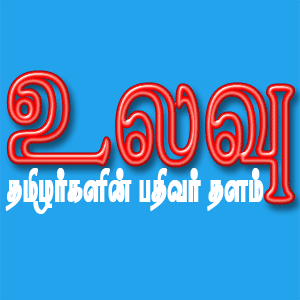










































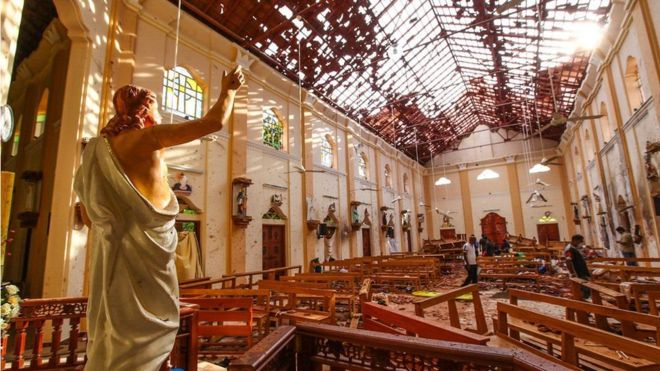















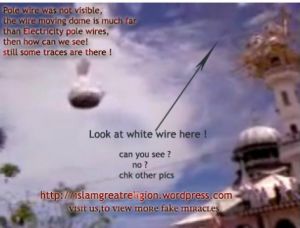



















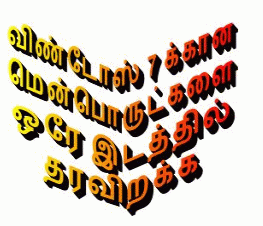













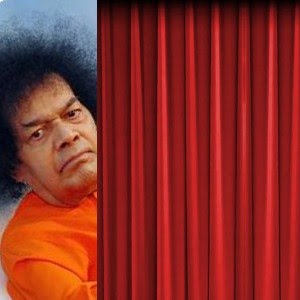













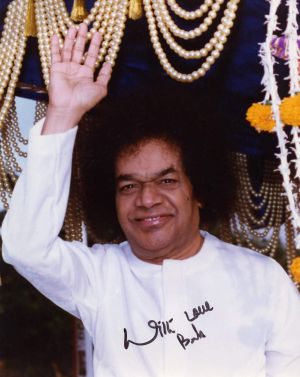


























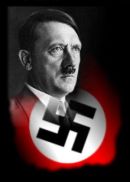





.jpg)
கருத்துகள் இல்லை:
கருத்துரையிடுக